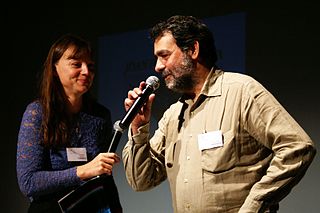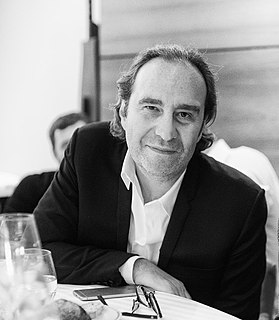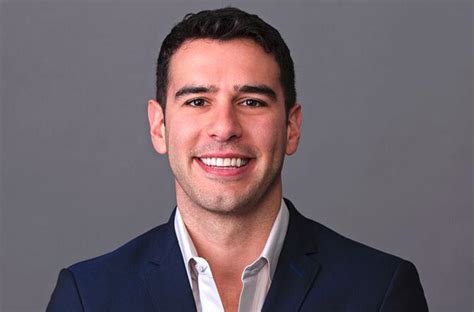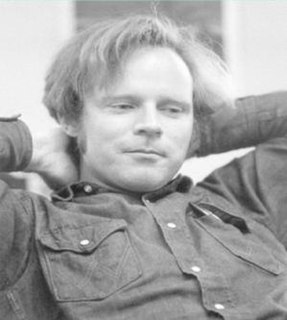Top 155 Rigor Mortis Quotes & Sayings - Page 3
Explore popular Rigor Mortis quotes.
Last updated on April 18, 2025.
Muscles without strength, friendship without trust, opinion without risk, change without aesthetics, age without values, food without nourishment, power without fairness, facts without rigor, degrees without erudition, militarism without fortitude, progress without civilization, complication without depth, fluency without content; these are the sins to remember.
We should be telling girls what they already know but rarely see affirmed: that the lives they lead inside their own self-contained bodies; the skills they attain through their own concentration and rigor, and the unique phase in their lives during which they may explore boys and eroticism at their own pace - these are magical. And they constitute the entrance point to a life cycle of a sexuality that should be held sacred.
May it not be asked of every intelligent friend to the liberties of his country, whether the power exercised in such an act as this ought not to produce great and universal alarm? Whether a rigid execution of such an act, in time past, would not have repressed that information and communication among the people which is indispensable to the just exercise of their electoral rights? And whether such an act, if made perpetual, and enforced with rigor, would not, in time to come, either destroy our free system of government, or prepare a convulsion that might prove equally fatal to it?
It is a thoughtless and immodest presumption to learn anything about art from philosophy. Some do begin as if they hoped to learnsomething new here, since philosophy cannot and should not do anything further than develop the given art experiences and the existing art concepts into a science, improve the views of art, and promote them with the help of a thoroughly scholarly art history, and produce that logical mood about these subjects too which unites absolute liberalism with absolute rigor.
Photography mirrored the [nineteenth century] will towards rigor, towards defining details, the need for miniscule description, the long-distance optics, for technology at the service of truth, for concepts of credibility, of objectivity, the need to archive, for the consolidation of institutions like the museum, in short, towards a need to control memory.
So much of our politics is stuck in patterns of response that aren't working. When student performance is declining in schools, we implement more controls, more testing, more "accountability," more rigor. We apply even more of those things, from security systems to control of students' behavior through pharmaceutical drugs. That's a situation in which doing is only making things worse. You may have to go through a phase of de-programming, letting go of old habits, coming to stillness, before you can even see what the pattern of action was, and what alternatives there might be.
I've never found an important decision made by a great organization that was made at a point of unanimity. Significant decisions carry risks and inevitably some will oppose it. In these settings, the great legislative leader must be artful in handling uncomfortable decisions, and this requires rigor.
All I'm arguing for really is that we should have a conversation where the best ideas really thrive, where there's no taboo against criticizing bad ideas, and where everyone who shows up, in order to get their ideas entertained, has to meet some obvious burdens of intellectual rigor and self-criticism and honesty-and when people fail to do that, we are free to stop listening to them. What religion has had up until this moment is a different set of rules that apply only to it, which is you have to respect my religious certainty even though I'm telling you I arrived at it irrationally.
Conscience is the most dangerous thing you possess. If you wake it up, it may destroy you. To live a life of total moral rigor is not necessarily the way to go. It's the path for very few people. Most people need to come up with some kind of middle ground that satisfies their practical, moral, and philosophical esthetic needs.
The Church does not invent sins but recognizes the will of God and has to declare it. Of course, the great thing.. is that upon the Church, which has to declare the will of God in its full magnitude, in its unconditional rigor, so that man should know his true measure, is bestowed as a gift, at the same time, the task of forgiving.
The writer’s job is to write with rigor, with commitment, to defend what they believe with all the talent they have. I think that’s part of the moral obligation of a writer, which cannot be only purely artistic. I think a writer has some kind of responsibility at least to participate in the civic debate. I think literature is impoverished, if it becomes cut from the main agenda of people, of society, of life.
It makes little sense to spend a month teaching decimal fractions to fourth-grade pupils when they can be taught in a week, and better understood and retained, by sixth-grade students. Child-centeredness does not mean lack of rigor or standards; it does mean finding the best match between curricula and children's developing interests and abilities.
While many in the social enterprise space often qualify themselves as 'non-profit,' these organizations should instead treat themselves as 'for-purpose.' These organizations should focus on their mission to create social good, while still treating themselves with the same commitment to rigor and discipline as the best for-profits.
Some philosophers can't bear to say simple things, like "Suppose a dog bites a man." They feel obliged instead to say, "Suppose a dog d bites a man m at time t," thereby demonstrating their unshakable commitment to logical rigor, even though they don't go on to manipulate any formulae involving d, m, and t.
I was a lousy academic. I spent most of my time in the cafeteria. But I met fantastic people from all kinds of fields; law, medicine, history, and they eventually dispersed all over the world to do their fieldwork. I liked the way these people committed to the long term in a sincere, visionary way. Their projects weren't about "next season." They were ten-year commitments. They were lifestyle choices that had traditions of fieldwork built into them - moving around, living on location, discipline, a real rigor for research.
Alchemy and Kabbalah are later developments in my thinking. I think the primary interest has been the relationship of magic and mystery to logic and understanding. Those are the primary driving forces of my life. I have this ability, for some reason, to be able to hold both the Magical MysteryTour we're on in conjunction with the logical rigor of understanding theoretical physics, which makes me kind of a rare bird, because usually you're one or the other.
The same individuals who are doing primary research in the role of humans on the climate system are then permitted to lead the [IPCC] assessment! There should be an outcry on this obvious conflict of interest, but to date either few recognize this conflict, or see that since the recommendations of the IPCC fit their policy and political agenda, they chose to ignore this conflict. In either case, scientific rigor has been sacrificed and poor policy and political decisions will inevitably follow.
The U.S. has a long history of walking up to the precipice of rigor and then walking away. As voters, let's support leaders who were courageous enough to make the hard decisions necessary to move our system forward. And as parents, let's put our faith in our educators, our children and tests that hold them to their highest potential.
Clearly, one does not have to give up being an academic, retreat from rigorous research, or renounce the importance of specialization in order to address major social issues. I don't think you give up theoretical rigor by writing in a way that addresses major social concerns and is at the same time accessible to wider informed general audiences.
Science is nothing more than a method of inquiry. The method says an assertion is valid - and will be universally accepted - only if it can be reproduced by others, and thereby independently verified. The impersonal rigor of the method has produced enormously powerful results for 400 years. The scientific method is utterly apolitical. A truth in science is verifiable whether you are black or white, male or female, old or young. It’s verifiable whether you know the experimenter, or whether you don’t.
The conventional explanation for Jewish success, of course, is that Jews come from a literate, intellectual culture. They are famously "the people of the book." There is surely something to that. But it wasn't just the children of rabbis who went to law school. It was the children of garment workers. And their critical advantage in climbing the professional ladder wasn't the intellectual rigor you get from studying the Talmud. It was the practical intelligence and savvy you get from watching your father sell aprons on Hester Street.
Paris, hours in the café, a certain spirit of rebellion, one side a bit too stubborn, the sea, the true, in Bretagne, the walking in Provence, the taste, the passion for literature, the libraries, the beautiful editions, remaking the world in a set of hours around a table and a bottle of wine. Talking without really saying nothing, just for the pleasure of talking. The museums, the theatres, the elegance, the delicacy, the heritage of the Illustration, a humanistic philosophy. The balance we got between a nordic rigor and a latin savoir-vivre, the insolence and the freedom.
The point of college is more to acquire skills than to acquire domain knowledge. One of the skills that is going to be most necessary: you have to be able to read with rigor and write with clarity. You have to be able to communicate. To make an argument, whether it's in a written piece or in front of a group of people.
One of the central developments of 19th century mathematics involved a dramatic increase in the standards of mathematical rigor. This was for a variety of reasons, but the short version is that there was a need to be stricter about the standards of proof, because certain familiar modes of reasoning had started to lead people astray, or at least threatened to do so.
The people from where I grew up have no appreciation for Paleolithic rocks or menstrual calendars. I'm a retriever of lost iconographies. But I had real training and have deep discipline, and I believe in it. Too much of the work I see today is just cultural junk. It's very superficial and has no rigor. It doesn't address the dynamic and real politics of an aesthetic structure.
The idea of freedom can never be disassociated from real Prussia. The real Prussian spirit means a synthesis between restraint and freedom, between voluntary subordination and conscientious leadership, between pride in oneself and consideration for others, between rigor and compassion. Unless a balance is kept between these qualities, the Prussian spirit is in danger of degenerating into soulless routine and narrow-minded dogmatism.

































